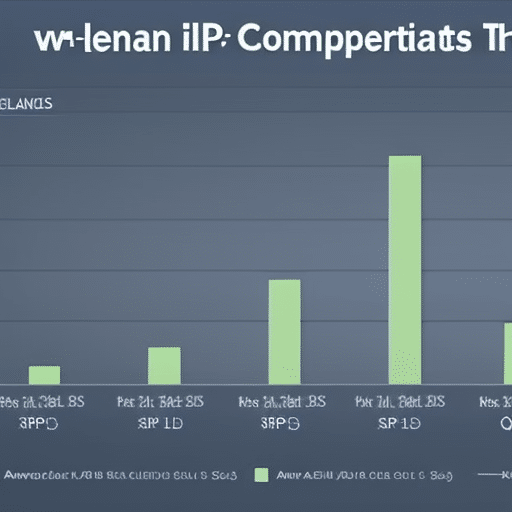Exploring Halal Crypto: Islamic Finance & Cryptocurrencies
Curious about how Islamic finance intersects with the world of cryptocurrencies? Exploring the compatibility between these two seemingly distinct financial realms can offer intriguing insights into modern financial practices. In the realm of Islamic finance, principles rooted in Sharia law guide transactions, emphasizing ethical and moral considerations. On the other hand, cryptocurrencies operate in a decentralized digital landscape, challenging traditional financial systems. Understanding how these worlds interact can shed light on the evolving nature of finance in today’s interconnected global economy.
Understanding Islamic Finance Principles
In the realm of Islamic finance, principles based on Sharia law guide financial transactions and investments. These principles are rooted in ethical and moral values, aiming to ensure fairness, transparency, and social responsibility in financial dealings. By adhering to these principles, you can participate in financial activities that align with Islamic teachings.
The Concept of Risk Sharing
In Islamic finance, risk-sharing is a fundamental principle that emphasizes the fair distribution of risks and rewards between parties involved in a transaction. Unlike conventional finance, where interest-bearing loans often transfer risk solely to the borrower, Islamic finance advocates for partnerships where risks and profits are shared equitably. This promotes a more cooperative and ethical approach to financial ventures.
For instance, in profit-and-loss sharing arrangements such as Mudarabah and Musharakah, both the investor and the entrepreneur share in the risks and returns of a business venture. This mutual risk-sharing fosters a sense of partnership and encourages responsible decision-making.
Prohibition of Interest (Riba)
One of the central tenets of Islamic finance is the prohibition of Riba, or interest. Riba refers to the unjust or exploitative gains made through lending money at an exorbitant rate of interest. In Islamic finance, earning a predetermined interest is considered unethical and goes against the principle of fair and just transactions.
By avoiding interest-based transactions, Islamic finance promotes economic justice and discourages practices that create wealth disparities. Instead, Islamic financial institutions offer Sharia-compliant alternatives such as profit-sharing agreements, leasing arrangements, and Islamic bonds (Sukuk) to facilitate transactions without resorting to interest-bearing loans.
Ethical Investment Considerations
Ethical considerations play a significant role in Islamic finance, guiding investment decisions based on moral and social values. Islamic finance principles prohibit investments in businesses that engage in activities deemed unethical or harmful to society, such as gambling, alcohol, tobacco, or weapons production.
By aligning investments with ethical standards, you can ensure that your financial activities promote social welfare and adhere to the principles of Sharia law. This ethical approach not only contributes to sustainable and responsible investing but also reflects a commitment to ethical business practices in the financial sector.
Incorporating Islamic finance principles into your financial decisions can offer a holistic approach to managing your finances while upholding ethical values and social responsibility. By understanding the core principles of Islamic finance, you can navigate the financial landscape in a way that reflects your beliefs and promotes financial inclusion and justice.
Cryptocurrencies: A Primer

Defining Cryptocurrencies
Cryptocurrencies are digital or virtual currencies designed to work as a medium of exchange. These digital assets use cryptography to secure transactions, control the creation of additional units, and verify the transfer of assets. Unlike traditional currencies issued by governments (fiat currencies), cryptocurrencies operate independently of a central authority, making them decentralized. Bitcoin, created in 2009, was the first decentralized cryptocurrency and remains one of the most well-known examples.
Blockchain Technology Explained
Blockchain technology underpins cryptocurrencies and serves as a decentralized and distributed ledger to record transactions across a network of computers. Each block in the blockchain contains a cryptographic hash of the previous block, a timestamp, and transaction data. Once a block is added to the blockchain, it is difficult to alter, ensuring transparency and security. This technology allows for secure, transparent, and tamper-resistant record-keeping, making it a foundational element of cryptocurrencies like Bitcoin.
By understanding the fundamental concepts behind cryptocurrencies and blockchain technology, you can grasp the innovative nature of digital assets and their potential implications in various sectors.
Islamic Finance Meets Cryptocurrency
The Compatibility Debate
In the realm of finance, where traditional values intersect with modern innovation, the compatibility between Islamic finance principles and cryptocurrencies has been a topic of fervent discussion. *Islamic finance principles emphasize ethical values, risk-sharing, and ethical investment decisions. They prioritize fairness, transparency, and financial inclusion through partnerships and profit-sharing arrangements. *When considering cryptocurrencies, such as Bitcoin or Ethereum, the debate often centers around their compliance with Islamic finance laws that prohibit usury (riba) and uncertainty (gharar). Understanding the nuances of Sharia law is crucial in assessing the permissibility of engaging with cryptocurrencies in Islamic finance.
Current Islamic Financial Products Using Cryptocurrency
In response to the growing interest in combining Islamic finance with the world of digital assets, several innovative financial products have emerged that cater to the principles of Islamic law. *For example, companies have developed Sharia-compliant cryptocurrency exchanges that adhere to established ethical guidelines in Islamic finance. *These platforms offer a space for users to trade cryptocurrencies while ensuring compliance with principles such as transparency and ethical conduct. *Moreover, some financial institutions have introduced halal cryptocurrency investment funds that allow individuals to invest in digital assets that align with Islamic finance principles such as profit-sharing and asset backing.
Islamic finance’s convergence with cryptocurrencies signifies a merging of traditional values with cutting-edge technology, paving the way for new opportunities in the financial sector that resonate with ethical and transparent practices.
Evaluating the Challenges
Regulatory Hurdles and Solutions
When considering the intersection of Islamic finance and cryptocurrencies, regulatory challenges can pose significant barriers. The evolving landscape of digital assets may not always align seamlessly with traditional financial regulations, particularly those rooted in Islamic principles. To navigate these hurdles effectively, it’s essential to develop innovative solutions that satisfy both regulatory requirements and Sharia compliance.
One key regulatory hurdle involves ensuring transparency and accountability in cryptocurrency transactions. Cryptocurrencies, often known for their decentralized nature, can sometimes lack the oversight necessary for Islamic finance adherence. To address this challenge, regulators, financial institutions, and blockchain developers must collaborate to implement robust monitoring mechanisms that uphold Sharia principles while maintaining the decentralized essence of cryptocurrencies.
Another critical aspect is the volatility of cryptocurrency prices, which introduces an element of uncertainty incompatible with Islamic finance principles. The fluctuating nature of digital assets raises concerns about speculation and excessive risk-taking, which are not in line with the concept of halal investing. A potential solution could involve the development of stablecoin alternatives that offer price stability and reduced volatility, aligning more closely with Islamic financial norms.
Furthermore, regulatory bodies and industry stakeholders must work together to establish clear guidelines for Sharia-compliant cryptocurrency exchanges and investment products. By creating a standardized framework for evaluating the compliance of crypto transactions with Islamic law, regulators can foster trust within the Muslim community and attract more participants to the digital asset space. These guidelines should address issues such as usury, gambling, and ambiguity in transactions to ensure full adherence to Islamic finance principles.
Ensuring Sharia Compliance in Crypto Transactions
To guarantee Sharia compliance in crypto transactions, it’s crucial to adopt a comprehensive approach that addresses both technical and ethical considerations. Islamic finance places a strong emphasis on ethical conduct, transparency, and risk-sharing, principles that should be reflected in all cryptocurrency dealings to meet the requirements of halal investing.
One of the key challenges in ensuring Sharia compliance lies in verifying the legitimacy and ethical nature of cryptocurrency projects and transactions. Due diligence is paramount to confirm that crypto assets do not involve prohibited activities such as gambling, usury, or speculation. Leveraging blockchain technology for enhanced transparency and auditability can help authenticate the compliance of crypto transactions with Islamic finance principles.
Moreover, education and awareness campaigns within the Muslim community can play a vital role in promoting Sharia-compliant practices in the cryptocurrency space. By providing clear guidance on halal investing in digital assets and highlighting the importance of ethical conduct, stakeholders can empower individuals to make informed decisions that align with their religious beliefs.
Overcoming regulatory challenges and ensuring Sharia compliance in crypto transactions require a concerted effort from regulators, industry players, and the Muslim community. By implementing innovative solutions, fostering transparency, and promoting ethical behavior, the convergence of Islamic finance and cryptocurrencies can lead to a more inclusive and sustainable financial ecosystem that upholds the values of Islamic principles.
The Potential of Blockchain in Islamic Finance
Blockchain technology has the potential to revolutionize Islamic finance by enhancing transparency and trust, as well as streamlining Islamic financial transactions.
Enhancing Transparency and Trust
Blockchain, known for its decentralized and transparent nature, can greatly enhance transparency and trust in Islamic finance. By providing an immutable ledger of transactions, blockchain technology ensures that all financial activities are recorded in a secure and transparent manner. This transparency is crucial in Islamic finance, where ethical considerations and adherence to Sharia principles are paramount. With blockchain, you can trust that transactions are executed as intended without any tampering or fraud, instilling confidence in the system.
For example, in Islamic banking, blockchain can facilitate real-time monitoring of transactions, enabling both financial institutions and customers to track fund transfers and investment activities accurately. This visibility promotes accountability and ensures that all parties involved comply with Islamic finance principles, fostering a more trustworthy ecosystem.
Streamlining Islamic Financial Transactions
Blockchain technology offers the potential to streamline Islamic financial transactions by reducing processing times and costs associated with traditional banking systems. Through smart contracts, you can automate and execute various financial agreements in accordance with Sharia principles, eliminating the need for intermediaries and expediting transaction processes.
For instance, in Islamic lending, blockchain-based smart contracts can automate the distribution of profits from financial products such as Mudarabah or Musharakah, ensuring that profits are distributed fairly among parties involved. This automation not only accelerates the distribution process but also minimizes the chances of errors or discrepancies, making Islamic financial transactions more efficient and reliable.
The integration of blockchain technology in Islamic finance holds immense potential to enhance transparency, trust, and efficiency in financial transactions while upholding Sharia principles. By leveraging the advantages of blockchain, you can create a more secure and ethical financial ecosystem that aligns with Islamic values.
Future Prospects and Developments
Innovation in Islamic Financial Instruments
In the realm of Islamic finance and cryptocurrencies, innovation continues to pave the way for the development of new financial instruments that align with Sharia principles. One notable advancement is the integration of blockchain technology to create digital assets that comply with Islamic finance laws. These Sharia-compliant crypto assets offer unique investment opportunities for individuals seeking to adhere to ethical guidelines while participating in the fast-evolving world of digital currencies. Companies are exploring innovative ways to structure financial products that incorporate elements of risk-sharing, transparency, and social responsibility, essential aspects of Islamic finance.
For instance, the concept of Mudarabah, a profit-sharing arrangement widely used in Islamic banking, can be adapted to develop Islamic crypto investment funds. In a Mudarabah-based crypto fund, investors provide capital, while fund managers use their expertise to trade digital assets in accordance with Sharia principles. Profits generated from these investments are shared between investors and managers based on pre-agreed profit-sharing ratios, fostering a mutually beneficial relationship that upholds the spirit of Islamic finance.
Moreover, the principle of Ijara, a leasing concept in Islamic finance, can be applied to tokenized assets in the crypto space. Through Ijara-based cryptocurrency projects, users can lease digital assets or participate in tokenized leasing arrangements that comply with Islamic guidelines. This innovative approach enables individuals to engage in crypto activities while adhering to Sharia requirements regarding asset ownership and income generation.
The Growing Market for Sharia-Compliant Crypto Assets
As awareness about Islamic finance and cryptocurrencies grows, so does the demand for Sharia-compliant crypto assets in the market. Investors seeking financial products that resonate with their religious beliefs are turning to halal cryptocurrency options that uphold ethical standards and align with Islamic principles. Companies specializing in Sharia-compliant finance are expanding their offerings to include digital assets that cater to the specific needs of Muslim investors, fostering a niche market within the broader cryptocurrency ecosystem.
In response to this growing demand, Sharia-compliant crypto exchanges are emerging, providing platforms for users to trade digital assets in compliance with Islamic finance laws. These exchanges undergo rigorous scrutiny to ensure that their operations align with Sharia guidelines, offering a secure and transparent environment for individuals to buy and sell halal crypto assets. The presence of such specialized exchanges contributes to the diversification of the crypto market, accommodating a wide range of investors with varying preferences and requirements.
Furthermore, the development of halal investment funds focusing on crypto assets allows investors to access diversified portfolios of Sharia-compliant digital currencies. These funds follow strict ethical standards and investment criteria prescribed by Islamic finance, offering an avenue for individuals to participate in the cryptocurrency market while adhering to their religious beliefs. The growth of Sharia-compliant crypto assets reflects a broader trend towards financial inclusivity and innovation, catering to the needs of diverse investor communities worldwide.
Conclusion
You’ve explored the intriguing intersection of Islamic finance and cryptocurrencies, uncovering the alignment of ethical principles and modern digital assets. The emergence of Sharia-compliant solutions in the crypto space signifies a harmonious blend of tradition and innovation. Despite regulatory challenges, the industry continues to evolve, offering new opportunities for Sharia-compliant investments. The potential of blockchain technology to enhance transparency and efficiency in Islamic finance is promising, paving the way for further advancements in this dynamic landscape. As the market for Sharia-compliant crypto assets grows, it underscores a shift towards inclusivity and adaptability in meeting the needs of Muslim investors. The journey of exploring this unique convergence has only just begun, with endless possibilities on the horizon.
Frequently Asked Questions
Are cryptocurrencies compatible with Islamic finance principles?
Cryptocurrencies can align with Islamic finance principles when used ethically, focusing on risk-sharing and investment in permissible assets.
Do Bitcoin and Ethereum comply with Islamic finance laws?
Debates exist on whether Bitcoin and Ethereum adhere to Islamic finance laws due to concerns about usury and uncertainty in their transactions.
How are Sharia-compliant cryptocurrency exchanges promoting transparency?
Sharia-compliant cryptocurrency exchanges prioritize transparency and ethical conduct to ensure compliance with Islamic finance principles.
What are the challenges at the intersection of Islamic finance and cryptocurrencies?
Regulatory hurdles pose challenges in merging Islamic finance with cryptocurrencies, necessitating innovative solutions for compliance.
How does blockchain technology enhance Islamic finance transactions?
Blockchain technology improves transparency, trust, and efficiency in financial transactions while upholding Sharia principles.
What are some examples of Sharia-compliant crypto assets?
Examples include Mudarabah-based crypto funds and Ijara-based cryptocurrency projects designed to be Sharia-compliant.
How is the market evolving for Sharia-compliant crypto assets?
Specialized exchanges and halal investment funds are catering to the needs of Muslim investors, reflecting growth in Sharia-compliant crypto assets.





 Bitcoin
Bitcoin  Ethereum
Ethereum  Tether
Tether  XRP
XRP  USDC
USDC  Solana
Solana  TRON
TRON  Lido Staked Ether
Lido Staked Ether  Dogecoin
Dogecoin  Figure Heloc
Figure Heloc  Bitcoin Cash
Bitcoin Cash  WhiteBIT Coin
WhiteBIT Coin  Cardano
Cardano  USDS
USDS  Wrapped stETH
Wrapped stETH  LEO Token
LEO Token  Hyperliquid
Hyperliquid  Wrapped Bitcoin
Wrapped Bitcoin  Monero
Monero  Binance Bridged USDT (BNB Smart Chain)
Binance Bridged USDT (BNB Smart Chain)  Chainlink
Chainlink  Ethena USDe
Ethena USDe  Canton
Canton  Stellar
Stellar  Wrapped eETH
Wrapped eETH  Zcash
Zcash  USD1
USD1  Hedera
Hedera  sUSDS
sUSDS  Litecoin
Litecoin  Dai
Dai  Coinbase Wrapped BTC
Coinbase Wrapped BTC  Avalanche
Avalanche  Shiba Inu
Shiba Inu  PayPal USD
PayPal USD  WETH
WETH  Sui
Sui  Toncoin
Toncoin  Cronos
Cronos  USDT0
USDT0  Rain
Rain  World Liberty Financial
World Liberty Financial  Tether Gold
Tether Gold  Polkadot
Polkadot  MemeCore
MemeCore  PAX Gold
PAX Gold  Uniswap
Uniswap  Ethena Staked USDe
Ethena Staked USDe